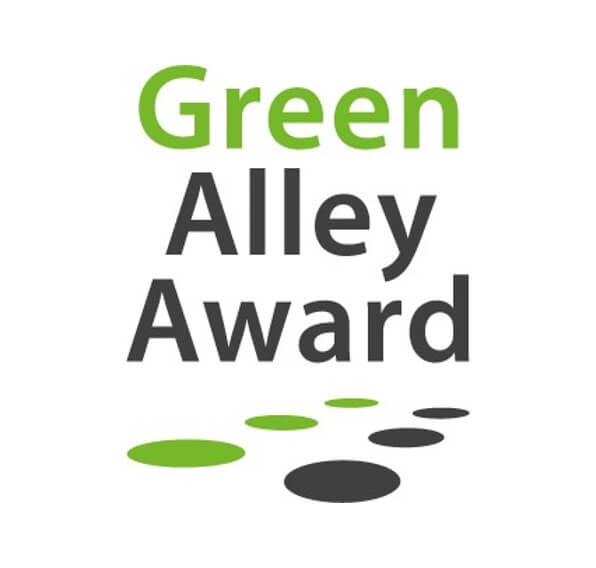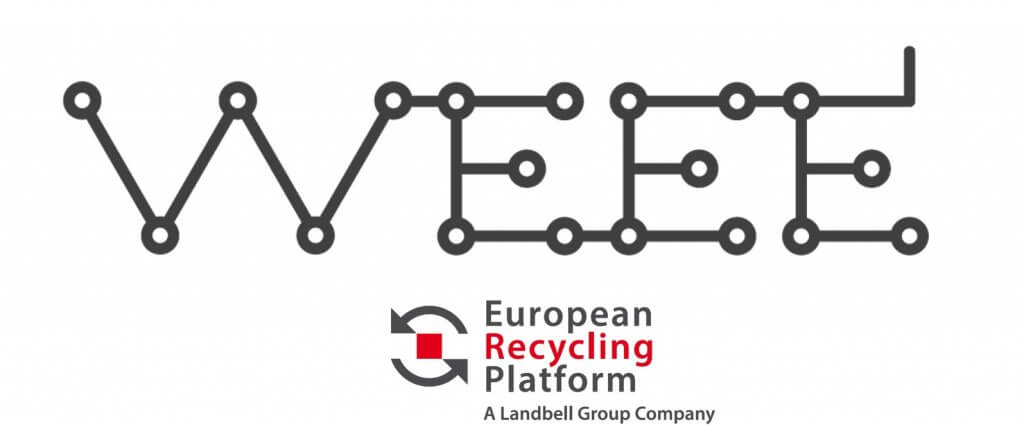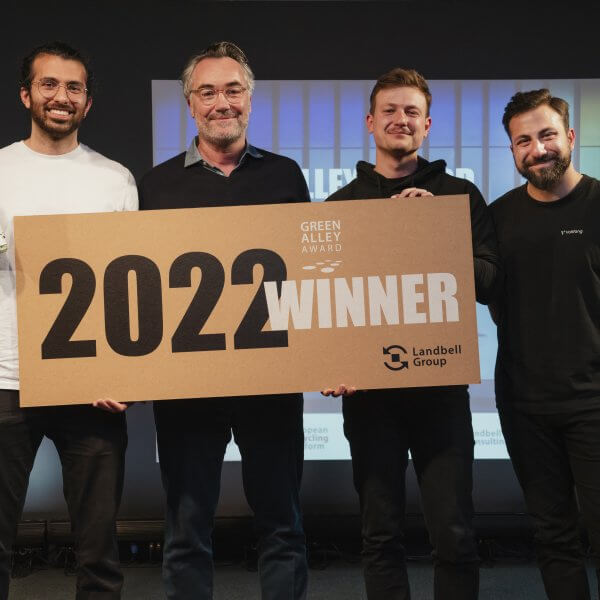e‑Waste Open Innovation winners
e-Waste Open Innovation rewards projects that promote the circular economy
Trash4Goods, PhoneHut and Byewaste are the three projects that took the podium of the program promoted by ERP Portugal, LG Portugal and Startup Lisboa which aimed to encourage entrepreneurs to develop solutions related to the WEEE recycling
Trash4Goods was the winning project for e-Waste Open Innovation, a capitation and mentoring program launched in early November by ERP Portugal and by LG Portugal with the support of Startup Lisboa, which today came to an end with the realization of a digital event where the other two projects that took the podium were also revealed.
PhoneHut and Byewaste were, respectively, in the second and third place of this challenge among five finalist teams of entrepreneurs, whose main objective was to present innovative solutions aimed at encouraging the recycling and reuse of Waste Electrical and Electronic Equipment - WEEE.
TRASH4GOODS - GAMIFICATION AND REWARD
The mission, concept and implementation plan brought together the jury consensus around the team of young university students of the Trash4Goods project, which aims to raise awareness and encourage people to take a more active role in recycling, making it more interactive and rewarding for the user, while reinforcing their environmental behaviors, transforming them into frequent habits. The objective of establishing a link between brands and consumers, through these same sustainable behaviors, and contributing to a much more circular economy, drew the attention of the entities involved and the project ends the challenge of more than three months as the big winner of the e-Waste Open Innovation.
Created in January 2020, at Junitec, Júnior Empresas from Instituto Superior Técnico, and having been part of its internal acceleration program, Trash4Goods intends to create a gamification system that allows the collection of WEEE to reward those who recycle. The simple solution, which integrates two components, a portable module and an application, and the team's vision of always trying to cover as much waste as possible, maximizing the impact on recycling, were decisive factors in the jury's decision. After this victory, and the € 15 000 prize, Trash4Goods will now have the opportunity to continue its project in partnership with ERP Portugal and LG Portugal and, also, have access to a three-month incubation period at Startup Lisboa .
PHONEHUT– KIOSK ATM SOLUTION
Who will also have access to these partners is PhoneHut, who will receive a prize of € 3500, as a runner-up in the e-Waste Open Innovation. This innovative technological solution allows any user to recycle and/or allow the recovery of their mobile phone through a Kiosk ATM solution. This project proved to be simple and with great potential, given that it contributes to reducing the ecological footprint of citizens, stimulating the delivery of these devices that, so often, are forgotten or kept at home, not allowing the recovery of the materials that compose them.
When finding a PhoneHut solution, the user connects his device and will have access to a diagnosis and disinfection of the equipment. This diagnosis will indicate the monetary value attributed to the equipment, according to the two available destinations: the delivery for later collection and recycling in charge of ERP Portugal, or the resumption for later recovery and commercialization. Two destinations, the same objective: to encourage the Portuguese to forward and recycle their electronic waste, which is not yet done by about 34% of the population.
BYEWASTE - APP TO CONNECT LEADERS AND WASTE COMPANIES
In 3rd place on the podium, receiving a prize of € 1500, was Byewaste. This technological platform, in the form of an app, was born in Rotterdam, Netherlands, and aims to increase the re-routing and recycling of household electronic waste by connecting citizens and waste companies through a convenient, simple door-to-door collection. For this purpose, the platform uses two tools - behavioral science and technology - which, on the one hand, promote the forwarding of WEEE to citizens, through social incentives, discounts, and environmental awareness and, on the other hand, allow, waste companies to outline specific collection areas to minimize costs.
e-Waste Open Innovation is a training and mentoring program, created and developed in 2020 by ERP Portugal and LG Portugal in partnership with Startup Lisboa, which challenged startups and entrepreneurs to present their solutions to encourage recycling and electronic equipment reuse. After a first phase of attracting applications, the challenge entered its final stretch with mentoring and mentoring sessions for the five finalist projects, carried out by the project partners in the last two months.
The ideas and projects of the entrepreneurs selected in the second phase, who today publicly presented their pitch, aimed to develop solutions related to WEEE recycling and the three challenges presented in the program:
1. Accumulation: WEEE routing solutions and programs and reconversion of recycling habits for this type of equipment;
2. Location: Technological solutions and tools that allow, encourage and facilitate the recycling process of this type of equipment, ensuring its correct treatment and recycling, preventing them from ending up in informal circuits;
3. Incentives: Technological solutions and initiatives that allow the definition of incentives (monetary and non-monetary) that significantly promote good recycling practices for this type of waste.
The evaluation and selection of the winning projects were carried out by a jury composed of members of the Portuguese Environment Agency, General Directorate for Economic Activities, ERP Portugal, Exame Informática, LG Portugal and Startup Lisboa.
AWARE THE PORTUGUESE
The e-Waste Open Innovation, and the partnership between ERP Portugal, LG Portugal and Startup Lisboa, was born with the objective of making the Portuguese aware of the importance of neutralizing some of the main environmental threats, including “electronic waste” , of which only 15 to 20% is recycled worldwide.
The need to raise this awareness is increasingly important, as according to the latest UN report, in 2019 53.6 million tons of electronic waste were produced worldwide and only 17.4% of that amount was reused or recycled. The UN also predicts that global electronic waste could reach 74 million tonnes in 2030 - making electronic waste the fastest growing domestic waste stream in the world.
In Portugal more than 30% of the population is not yet in the habit of forwarding and recycling their electronic waste. In addition to having a negative impact on the environment, Waste Electrical and Electronic Equipment (WEEE) when not properly disposed of is also a health risk, as it contains harmful toxic substances, such as mercury, which can cause neurological diseases and affect the coordination system.
News & Events
Latest news and events
It is not only about process and compliance, but also about networking. ERP shares knowledge, insights, and news so that together we promote the sustainable agenda.
News
October 14th, 2022
“Recycle it all, no matter how small”
News
May 2nd, 2022
This year’s Green Alley Award goes to the German start-up Voltfang


